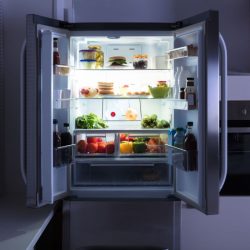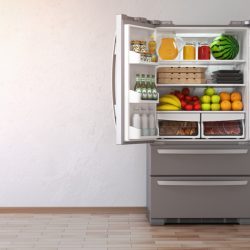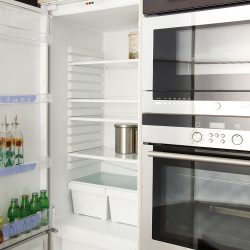A refrigerator that occasionally makes noises is normal. But if your fridge has started sounding like a cricket, you may wonder what the problem is and how to fix it. Look no further! In this post, we put together the research to answer your questions on this matter.
If your fridge is making cricket or chirping noises, there is probably a problem with its evaporator fan. When the fan starts to malfunction, it means the bearings are starting to wear out, which can result in a chirping noise. You can find this fan at the back of the fridge.
Now that you know what is causing the cricket sounds, you will want to fix the problem. A faulty evaporator fan is noisy and can negatively affect the performance of your fridge. If you want tips on how to fix your evaporator fan and some insights on other fridge noises, read on!
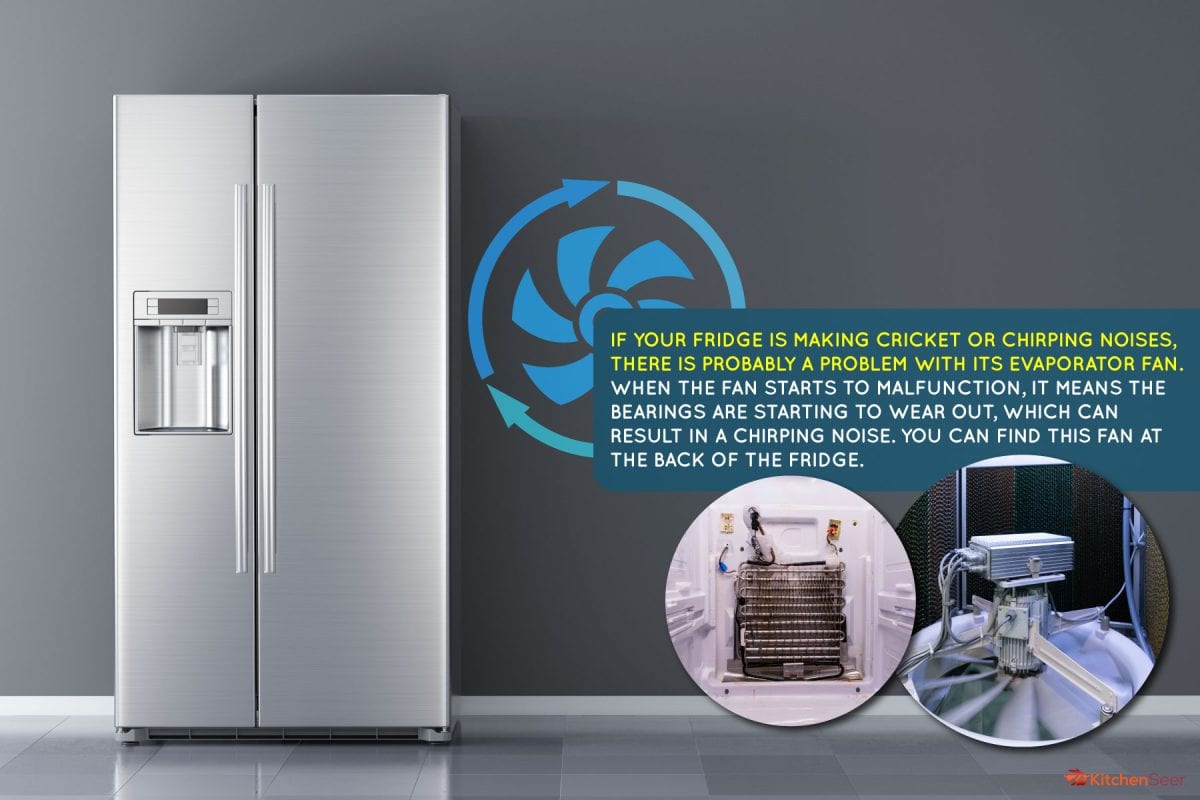
How Do You Fix A Chirping Refrigerator?
An evaporator fan pushes cool air through your fridge. When it breaks or stops working properly, you will have to fix the fan's motor.
You can usually tell that it is time to make repairs to the evaporator fan motor when your fridge is not cooling the way it is supposed to. The cricket noise is also an indicator.
To fix your fridge evaporator fan, here is what you have to do:
- Unplug your refrigerator (make sure it is fully disconnected from the electrical source)
- Take off the access panel on the back of the fridge
- Find the evaporator fan (usually next to the coils)
- Remove the fan blade
- Remove the damaged motor
From here, you can either try to repair the evaporator fan motor or completely replace it. This will depend on how far gone it already is. If you are replacing the motor, make sure that it fits your fridge and the fan blades.
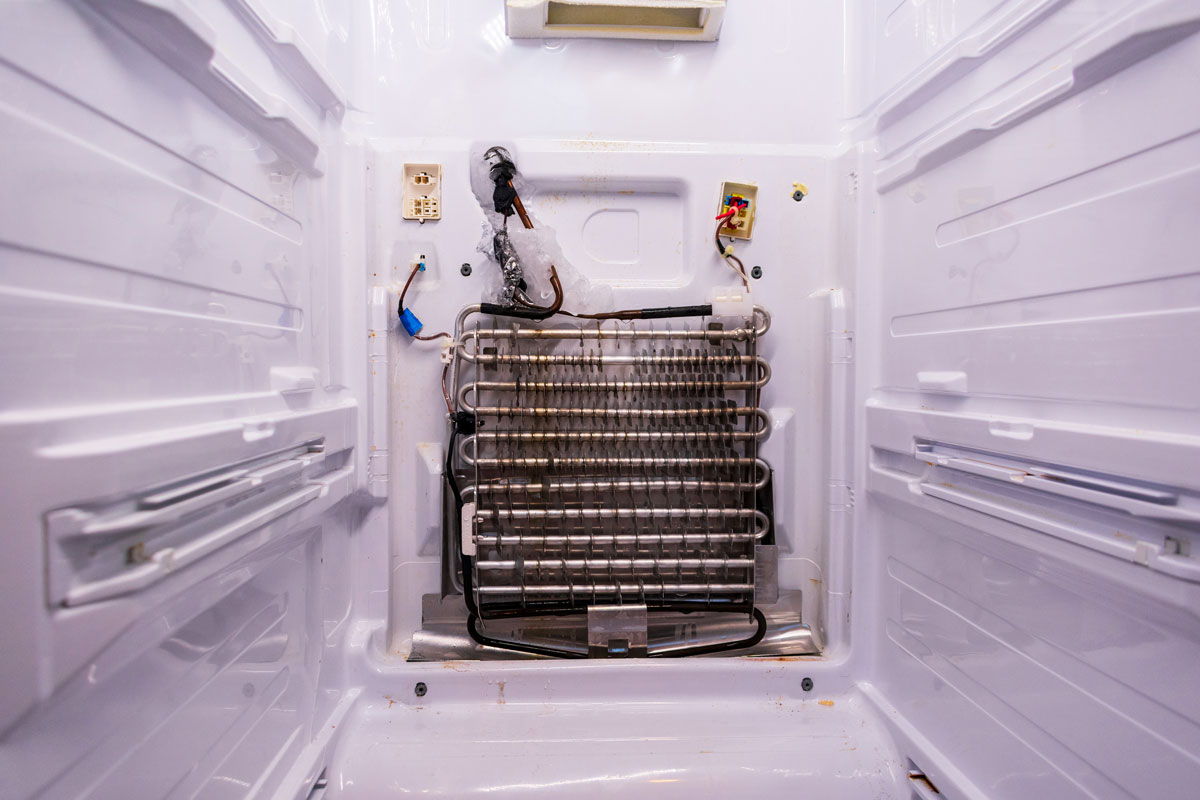
You can try purchasing a replacement motor online or from the shop you bought your fridge from. The best option would be to buy from the same manufacturer of your fridge to make sure the pieces fit your model.
In reassembling your evaporator fan motor, take extra care in connecting the grounding wires and power. Make sure everything is fit securely, especially the fan blades.
Once you have replaced the motor, fan, and back panel, restore power to your fridge. You can now test to see if the evaporator fan is working.
Click here to see this evaporator fan motor on Amazon.
When Should I Worry About My Fridge Noise?
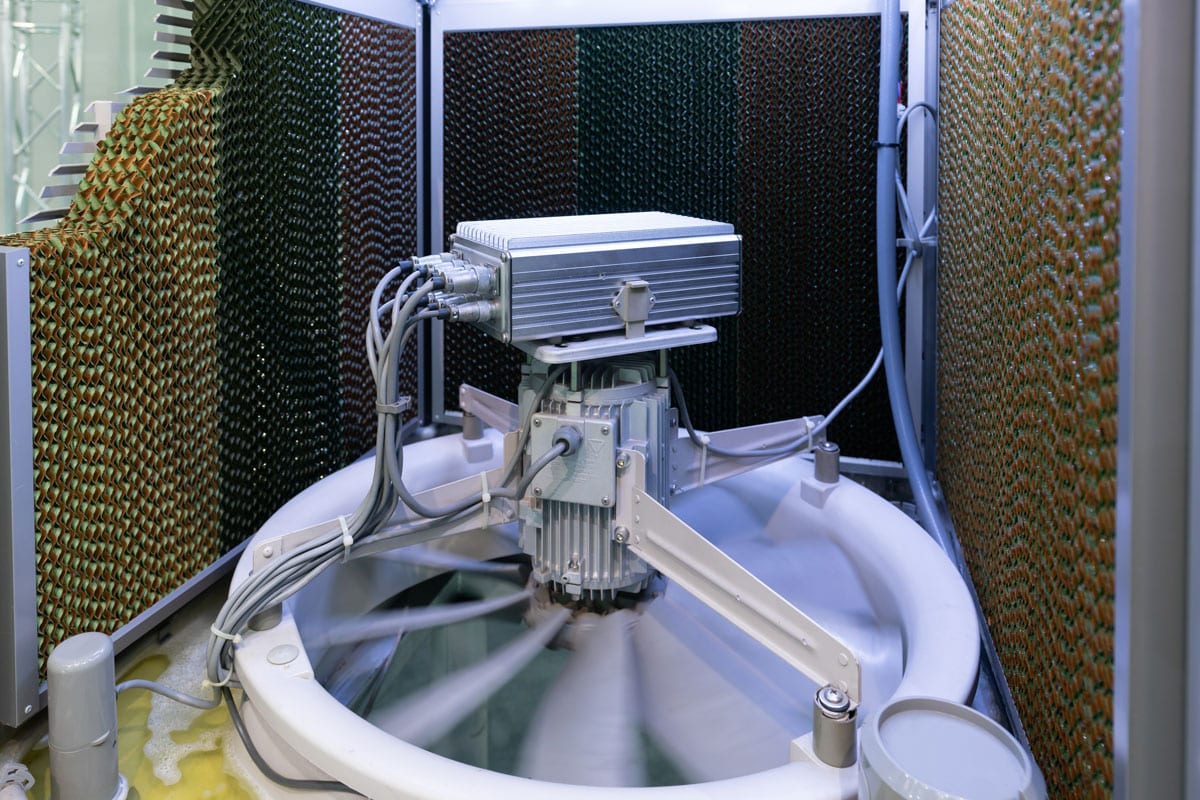
As we mentioned, noises from your fridge are normal. Since it is always running, its motors and mechanisms exert a lot of effort.
Noises like steady a humming result from the usual processes of your unit. Occasionally, you can even hear crackling due to temperature changes.
The volume of humming from your fridge's compressors is important to take note of. The noise should be negligible, albeit audible.
This means the sound is not loud enough to cause distraction. If the humming gets so loud that it can be heard across the room, then it is time to get your fridge checked.
In general, you should start worrying when you notice abnormal sounds coming from your fridge. Aside from evaporator fan issues, different noises can point to different problems.
Other Noises That Your Fridge Can Make
If a little noise is normal, then you may be wondering what abnormal sounds should you be listening for.
Here is a list of some of the noises your fridge can make, besides humming. We'll discuss whether or not each sound is normal, and what is causing it:
Popping Sounds
You may notice popping or crackling noises coming from your fridge. We mentioned before that this is likely due to temperature changes.
For example, when the plastic contracts in your freezer or when the ice cracks, you may hear noises. Your fridge's condenser coils, where coolant flows, can also be a source of cracking noises.
Regularly defrosting and cleaning your fridge can help keep these noises to a minimum.
When cleaning your refrigerator coils, make sure to have the fridge unplugged beforehand. From there, you can access the coils for dusting and vacuuming.
Click here to see this stainless steel cleaner kit on Amazon.
Beeping
Depending on the type of fridge you have, beeps can be programmed into it. This is common with smart fridges.
If your fridge has sound features, then a beeping noise is likely a call for your attention. For example, it may be an indicator that you left the fridge door open.
Whatever the case, check your user manual to see if it says anything about beeping. If you do not have the manual, you can go online and search for your fridge brand and model number.
Gurgling
When the coolant flows through the condenser coils, it can create a gurgling sound. This is perfectly normal and should not raise concerns unless it becomes constant. Occasionally, you may even hear a hissing sound due to the coolant.
Rattling
Your fridge can make rattling noises as its settings change. For example, the compressor may cut off, or your fridge may be cooling after a defrost.
This type of sound may be produced if your refrigerator is not securely positioned. Make sure your fridge is placed properly and in a stable position. It should not be too close to a wall, and the feet must be level.
Squeaking
A squeaking or squealing noise is similar to a cricket noise. If you hear high-pitched, continuous squeaking from your fridge, then there is an issue with one of its internal fans.
What Does A Dying Refrigerator Sound Like?

There is no definitive sound that a dying fridge makes. A fridge could be making loud, unusual noises but work just fine after repairs are made.
While a dying fridge is prone to sounding like its motor is going out, you should be aware of other signs of a dying fridge.
One thing to look out for with your fridge is how well it manages its temperature. You can tell that your fridge is not cooling properly if food starts going bad, or ice refuses to form no matter how low the thermostat is.
A dying fridge also exerts more effort to cool, resulting in higher energy consumption than normal. If you notice sudden spikes in your electricity bill, check to see if your fridge is the problem.
Chances are you may still be able to save your fridge. Call a professional to have it checked or have parts replaced. Note that sometimes replacements and repairs can add up and cost more than just buying a new fridge.
When Should I Replace My Fridge?
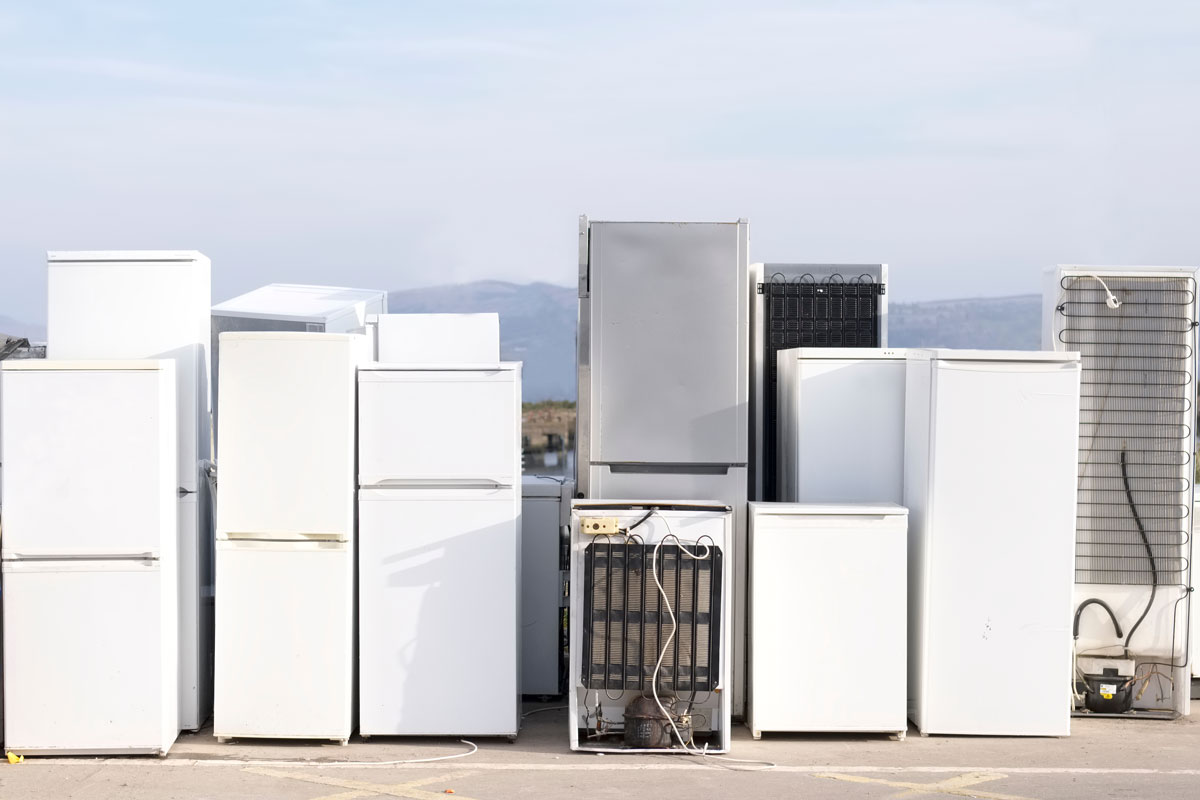
A standard fridge should last between 10 and 20 years. You can start expecting issues around these times. If your fridge is older than 20 years and starting to show problems, you will want to get a new one.
Buying a new fridge is a big investment. With all of the options out there, making a choice can be overwhelming. If your fridge model is significantly old, you are unlikely to buy its exact replacement.
To save you the stress of replacing your fridge, it is helpful to have some specifications in mind. Consider if you want to upgrade, downgrade, or maintain the specs of your old fridge.
A lot of modern fridges have eco-friendly and energy-saving functionalities. While these tend to be pricier up front, the energy costs, in the long run, could save you a lot if you are concerned with your electricity bill.
Choose a fridge that is the right size for the usual amount you keep in it. Do not neglect its appearance and check to see if it fits in your kitchen layout. Of course, you will also want to buy a fridge that fits within your budget.
Wrapping Things Up
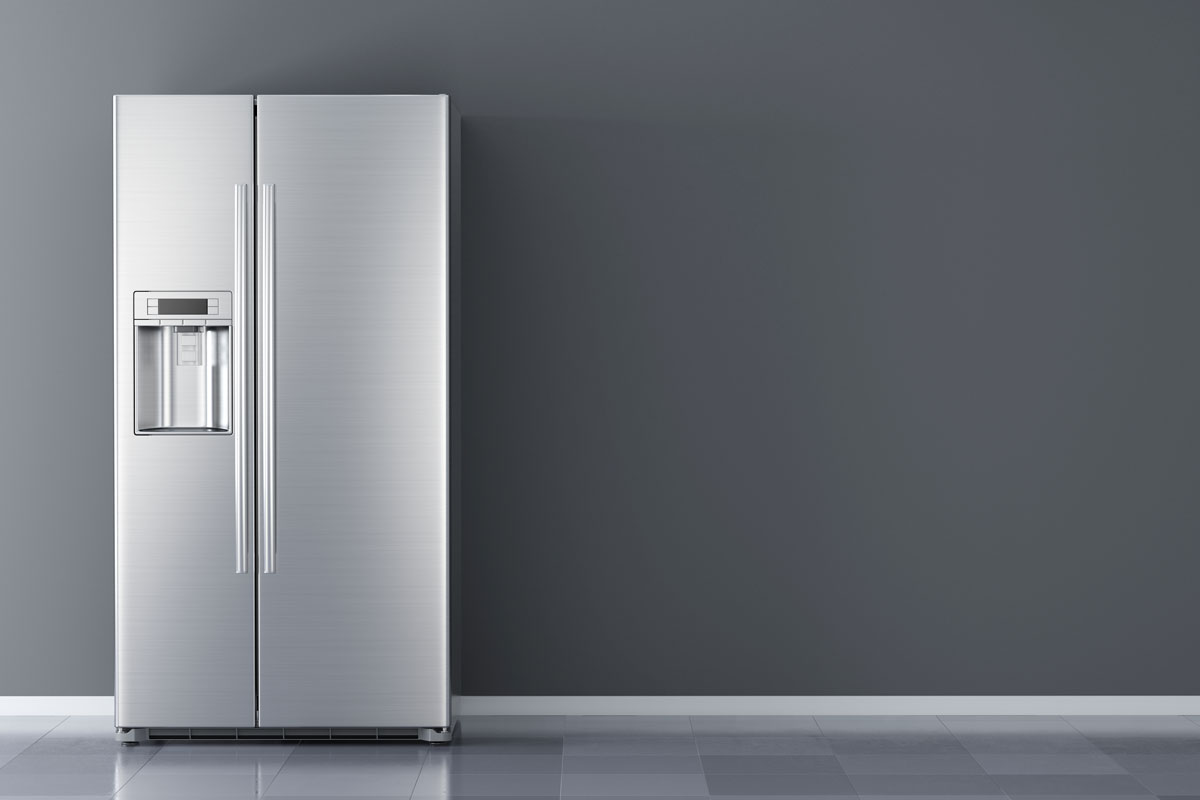
If your fridge is making cricket sounds, it is not because of a cricket infestation! A malfunctioning evaporator fan is the likely source of this noise. Once this happens, you should repair your evaporator fan motor as soon as possible.
Replacing the motor can be a DIY job, but if your skills are not up to the task, you should call a professional mechanic. Trying to fix it yourself could be dangerous and lead to more problems if you do not know how.
Did you find this post helpful? If you did, check out our other article before you go!
Fridge Sounds Like Running Water Gurgling
Bosch Fridge Freezer Making Noise – What To Do?




